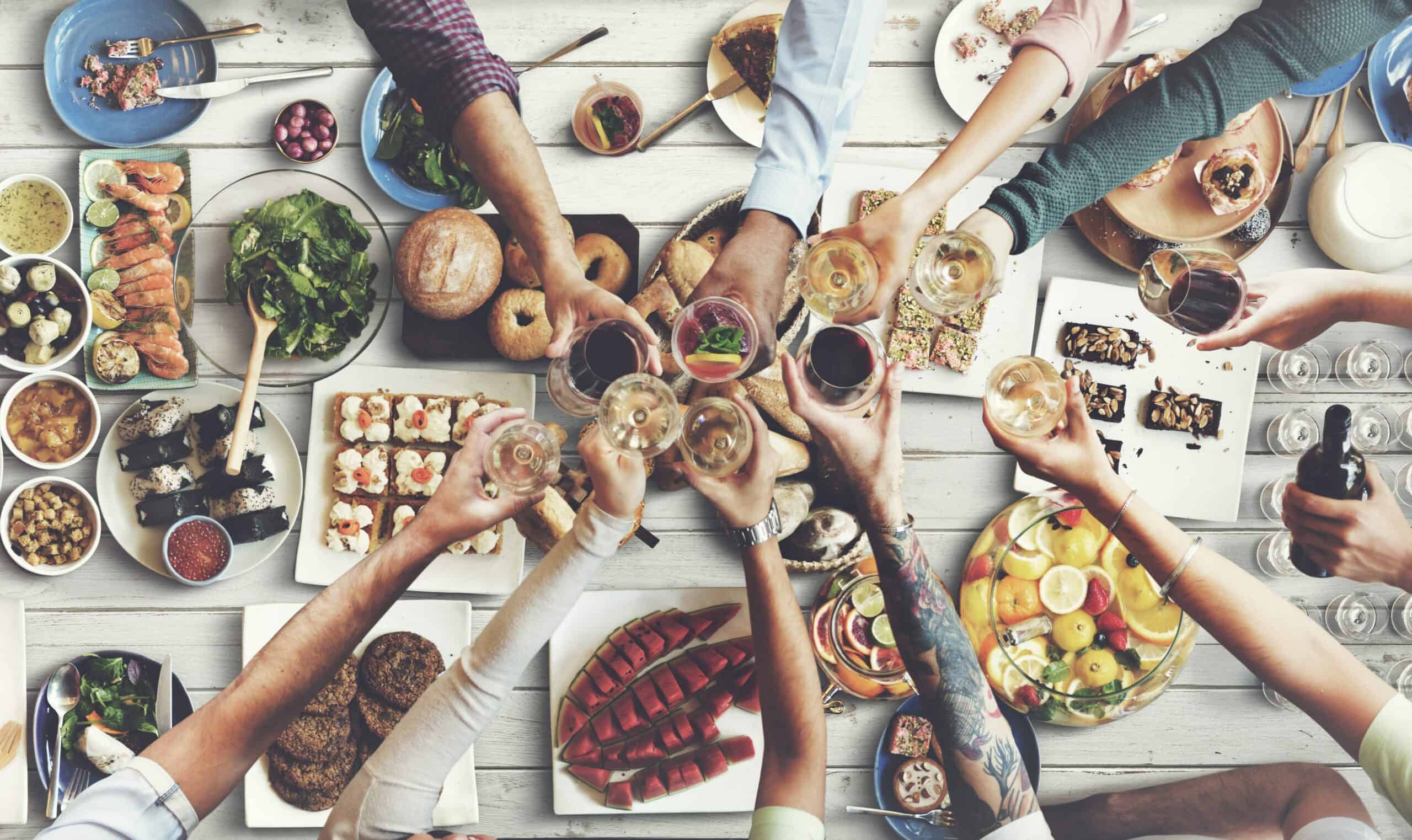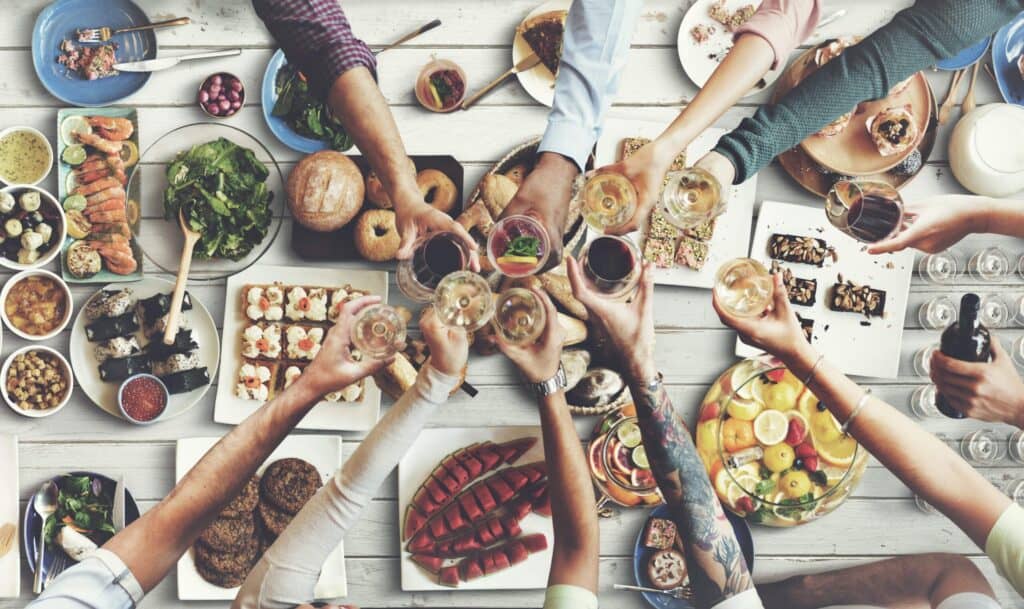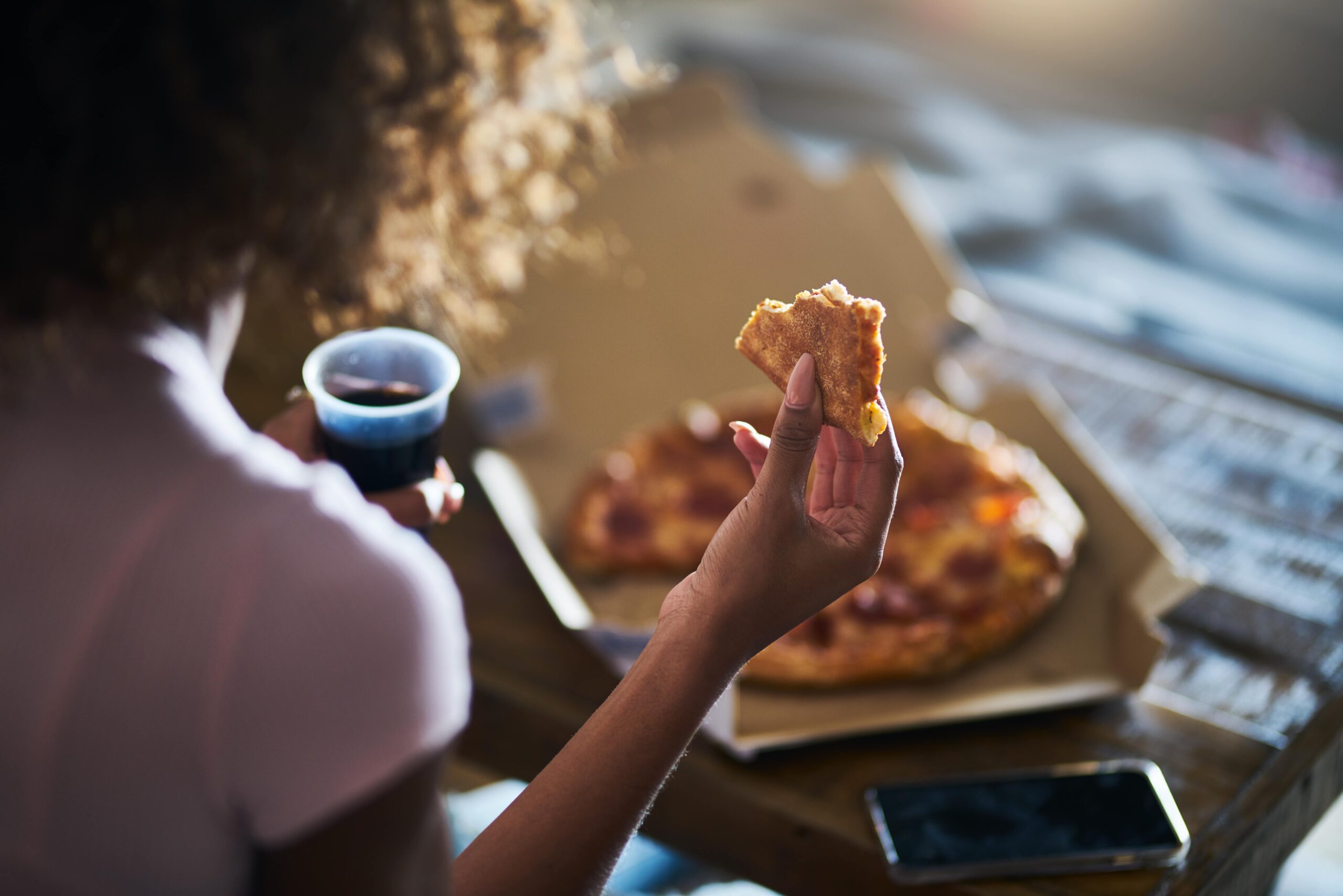Blog

3 Ways to Eat For Pleasure & Improve Your Health
A wise person does not simply choose the largest amount of food but the most pleasing food.
- Epicurus (341–270 BC)
How many times have you eaten a meal while texting, watching Netflix or responding to emails and then all of a sudden, you realise you’ve finished eating without even really tasting your food?
You deserve better!
Cue: joyful eating.
Eating for satisfaction is a key element of Intuitive Eating that prioritises pleasure, mindfulness and an awareness of the five senses. It involves choosing foods you enjoy eating and taking the time to do so slowly and sensuously.
At Embody Health London, we strongly believe that eating should be a pleasurable experience.
The importance of joyful eating was first demonstrated by what is known as ‘The French Paradox’. This phenomenon, discovered in the 1980s, showed the French people to have low rates of coronary heart disease despite a high intake of saturated fats. It was thought that this contradiction may be explained in part by their emphasis on finding pleasure in food.
A follow-up study comparing French and American food cultures found that the French placed significantly more value on the importance of a pleasurable eating experience than their American counterparts. Despite being notably less concerned about the ‘healthiness’ of their eating habits, 69%-82% of the French participants also considered themselves ‘healthy eaters’ compared to only 23%-45% of the American participants.1
HOW might this be?
When we eat joyfully, food becomes MORE than just relief from hunger – instead, it becomes an opportunity to experience pleasure, connection and gratitude, which has been shown to be associated with improved psychological and physical wellbeing.2
In some countries (such as Japan and Canada), enjoying your food is actually one of their dietary guidelines. Considering that evidence suggests that health promotion messages focusing on pleasure may improve public perception of healthy eating, we think this is an excellent suggestion!3
Additionally, did you know that eating joyfully can actually improve your nutrient absorption? How amazing is that?!
This was demonstrated in a study from the 1970s, where Thai and Swedish women consumed a traditional Thai meal and their iron absorption was measured.4 The Thai women naturally enjoyed the meal more and absorbed almost 50% more iron than the Swedish women. The meal was then pureed into an unappealing mush, and iron absorption for both groups decreased by 70%. This gives us a great insight into how important pleasure is for good nutrition!
You may be wondering if joyful eating is simply an excuse to eat huge amounts fast food every day. This is a fair assumption, since most people associate foods high in fat and sugar with pleasure.5 However, the evidence contradicts this thought, with research finding that fruit and vegetables can elicit just as much enjoyment as sweet foods.5
Additionally, when the portion sizes of joyful eaters and restrictive eaters are compared, they’re actually pretty similar!2 This might be because tuning into our bodies allows us to recognise satisfaction earlier in the meal than when we are distracted. This is supported by another study, which found that when participants focused on a meal using all five senses, their portion sizes were smaller but their enjoyment of the meal was equally high.6
If joyful eating is a practice you’d like to introduce into your own life, here are some TOP TIPS on how to do it:
ONE: Eat mindfully
Unfortunately, the phrase ‘mindful eating’ has been co-opted by the dieting industry as another way to restrict our intake. But in its pure form, mindful eating encourages the use of all five senses while eating – in other words, what does the food look, smell, feel, sound and taste like? When you minimise distractions and bring awareness back into your meal times, you may find your food tastes more flavoursome and is more satisfying. You may even discover you actually don’t like certain foods as much as you thought you did and just didn’t notice before!
TWO: Eat before you are starving
Once your level of hungriness gets to the point where you’re feeling weak and shaky, you’re probably not going to be able to thoughtfully choose foods based on potential enjoyment – instead, your body will be so desperate for sustenance that you’ll likely want to eat whatever you can get your hands on as fast as you can!
It’s important to get in touch with your hunger cues and recognise when you are ready for your next snack or meal before you get to that state of desperation so that you can savour the experience and the associated pleasure.
THREE: Let go of food guilt
The gut is super sensitive to emotions thanks to a communication pathway known as the gut-brain axis. This connection means that our gastrointestinal function is extremely sensitive to emotions, such as stress and guilt. When we feel anxiety around eating, this can cause issues with digestion such as bloating, cramps and diarrhoea.7
Guilt stems from the belief that you have done something ‘wrong’, which comes from the food rules diet culture leads us to believe. Remember, there is NO right or wrong when it comes to foods therefore, there is no place for guilt when it comes to eating!
If you would like more support with learning how to find more joy and satisfaction from the food you eat, we would love for you to get in touch!
Contact us at [email protected] to find out how we can work with you towards your goals.
Karli Battaglia MDiet, APD
EHL Team x
References
- Rozin P, Fischler C, Imada S, Sarubin A, Wrzesniewski A. Attitudes to Food and the Role of Food in Life in the U.S.A., Japan, Flemish Belgium and France: Possible Implications for the Diet–Health Debate. Appetite. 1999;33(2):163-180.
- Cornil Y, Chandon P. Pleasure as an ally of healthy eating? Contrasting visceral and Epicurean eating pleasure and their association with portion size preferences and wellbeing. Appetite. 2016;104:52-59.
- Vaillancourt C, Bédard A, Bélanger-Gravel A, Provencher V, Bégin C, Desroches S et al. Promoting Healthy Eating in Adults: An Evaluation of Pleasure-Oriented versus Health-Oriented Messages. Current Developments in Nutrition. 2019;3(5).
- Hallberg L, Garby L, Suwanik R, Björn-Rasmussen E. Iron absorption from Southeast Asian diets. The American Journal of Clinical Nutrition. 1974;27(8):826-836.
- Wahl D, Villinger K, König L, Ziesemer K, Schupp H, Renner B. Healthy food choices are happy food choices: Evidence from a real life sample using smartphone based assessments. Scientific Reports. 2017;7(1).
- Cornil Y, Chandon P. Pleasure as a Substitute for Size: How Multisensory Imagery Can Make People Happier with Smaller Food Portions. Journal of Marketing Research. 2016;53(5):847-864.
- Molina-Torres G, Rodriguez-Arrastia M, Roman P, Sanchez-Labraca N, Cardona D. Stress and the gut microbiota-brain axis. Behavioural Pharmacology. 2019;30:187-200.














